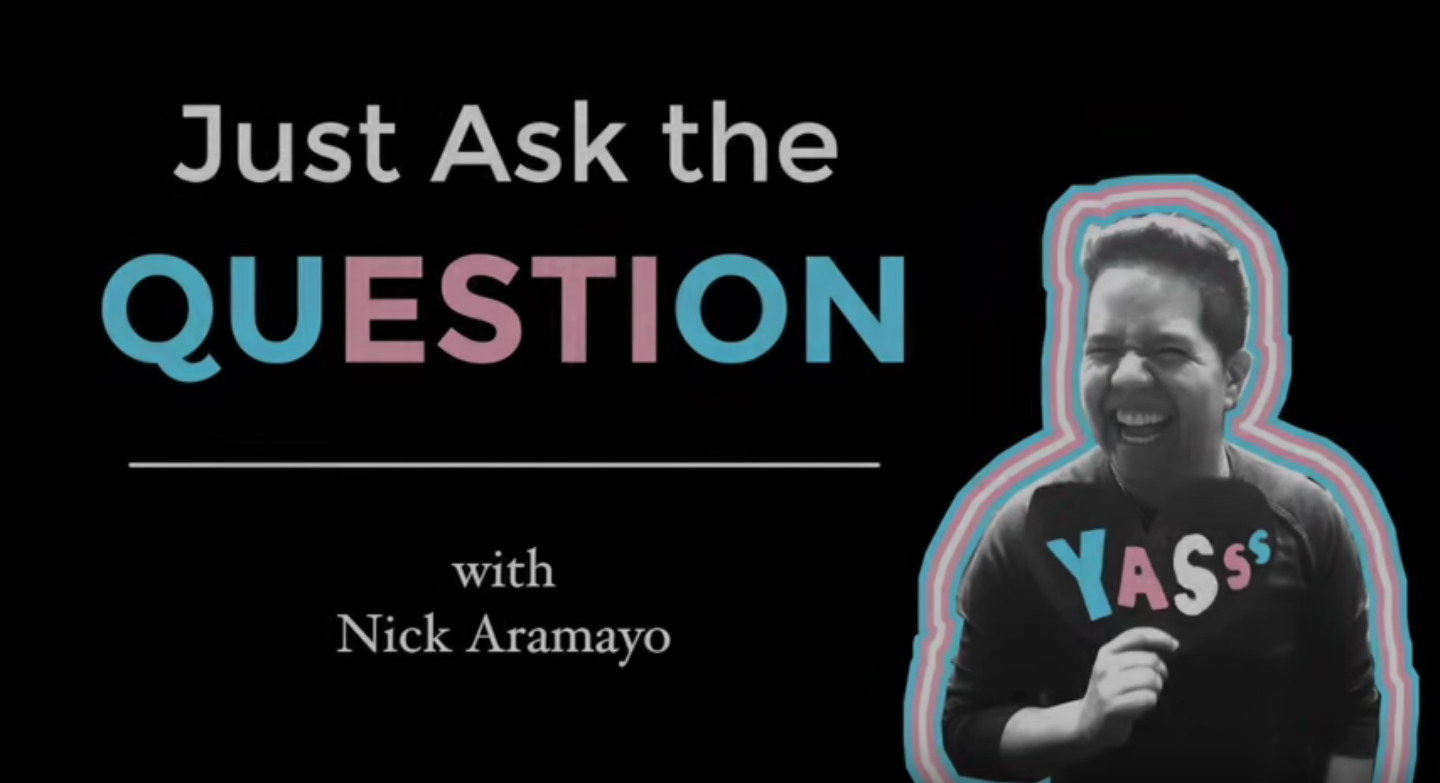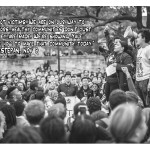by Karen Marks
Earlier this semester, Nick Aramayo ’17 (they/them/theirs), filmed a video explaining why it’s important to specify gender pronouns in classroom introductions. The video became so popular that Aramayo started a video series called “Just Ask the Question” (JAQ) to provide more opportunities for cisgender* students at Yale to become educated allies of the trans community.
For JAQ, Aramayo receives questions by Facebook message that cisgender people may not be comfortable asking publicly, and answers them in a video response. Askers remain anonymous to viewers. If Aramayo feels the question is inappropriate, they explain why, and refer askers to other resources.
As a trans Latinx student, Aramayo aims to open up discussions of gender and sexuality to include dialogue around class and race in ways absent from the privileged, white LGBTQ discussion space that predominates at Yale.
As a Women’s, Gender, and Sexuality Studies major, Aramayo researches Latin American gender queerness, learning about an indigenous Mexican third gender called the muxes, Venezuelan “pageant queens,” and the Brazilian travesties who often perform as women and get feminine medical enhancements, but don’t necessarily identify as women. These groups are often translated incorrectly into Western queer culture.
“When they give statistics on trans women being murdered in Brazil,” says Aramayo, “I wonder: how many of those are trans women, and how many are travesties?”
As a speaker of Spanish, Aramayo has had to reconcile their trans experience with a language that lacks gender-neutral pronouns. Ultimately, they decided that masculine pronouns best reflected their trans-masculine, non-binary identity.
This is not Aramayo’s first involvement with trans life at Yale. This summer, they created In the Qloset, a clothing donation program for trans students at Yale in need of new clothes that fit their gender expression. Clothing swap events provide members of the trans community with free clothes and a space to socialize in a primarily cis world.
Still, Aramayo hopes that viewers of their series understand that they are not the final say in trans issues.
“There are just as many ways to be trans as there are trans people in the world,” Aramayo says.
There are currently five episodes of “Just Ask the Question” on Aramayo’s channel.
*“Cisgender” refers to people who identify as their gender assigned at birth.


